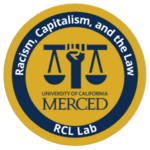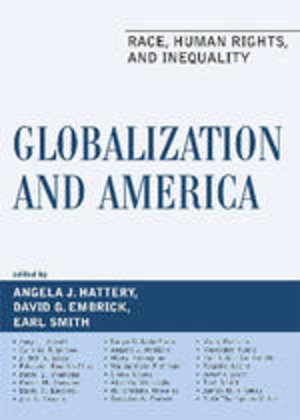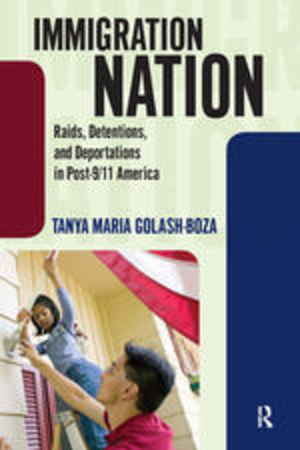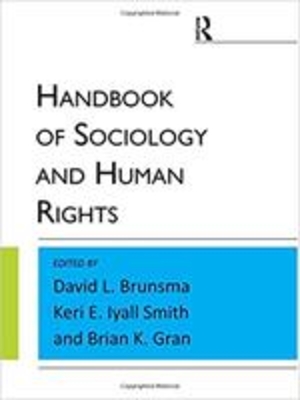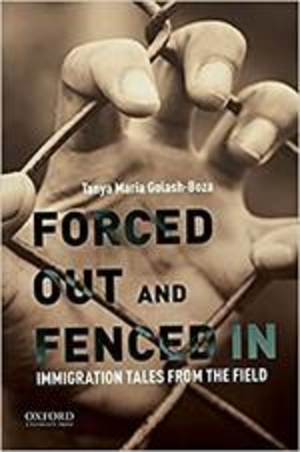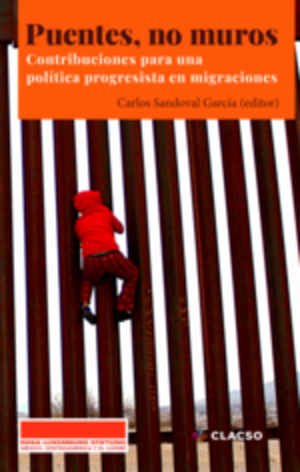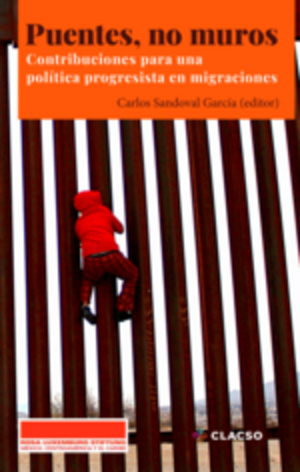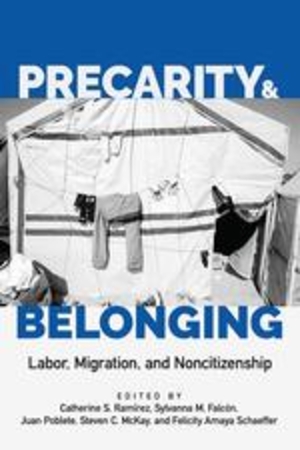This paper examines the relationship between globalization and immigration, and makes the case that current foreign policies and immigration regulations in the United States and France result in the violation of the human rights of migrants. In the United States, the House and Senate proposals presented in 2005 and 2006 to stem the tide of immigrants and thereby fix the immigration "problem" either criminalize undocumented workers or transform them into temporary workers. In France, the "selected immigration" bill introduced by Interior Minister Nicolas Sarkozy, and passed in 2006, makes it easier for skilled workers to enter and remain in France and harder for less skilled workers to do so. These proposals and bills fail to see immigrants as human beings with dignity and fundamental rights to a livelihood, a family, and a community, and fail to take into account the receiving countries" complicity in producing emigration. Designed to maximize profits for corporations, and minimize the prices of consumer goods for customers in the Global North, these policies and regulations have a high human cost. This paper explains how temporary worker programs are designed to extract labor from immigrants while preventing them from becoming full and equal members of the communities in which they work and live, and how the criminalization of undocumented immigrants transforms migrants into second-class citizens. From a human rights perspective, all human beings should have the right to food security, to decent health care, to safe working conditions, to an education, to a family, to their cultural identity, and to fight and organize for their rights. Temporary worker programs that permit workers to come to a country only to work for low wages and no benefits, and do not permit them to bring their families, to send their children to school, and to form communities are a violation of these workers" human rights.
- Home
- Global Apartheid
Global Apartheid
As globalization expands, more than goods and information are traded between the countries of the world. Hattery, Embrick, and Smith present a collection of essays that explore the ways in which issues of human rights and social inequality are shared globally. The editors focus on the United States’ role in contributing to human rights violations both inside and outside its borders. Essays on contemporary issues such as immigration, colonialism, and reparations are used to illustrate how the U.S. and the rest of the world are inextricably linked in their relationships to human rights violations and social inequality. Contributors include Judith Blau, Eduardo Bonilla-Silva, and Joe R. Feagin.
The concept of an immigration industrial complex draws from previous work on the prison industrial complex and the military industrial complex. All three of these complexes point to the ways that the interests of government bureaucracies, corporate elites, and politicians shape laws and policies. This article explains how the undocumented status of migrants provides advantages to at least three groups: (a) media pundits who make their careers railing against ‘illegal aliens’; (b) politicians who use undocumented migrants as scapegoats; and (c) contractors who profit from massive immigration enforcement expenditures. The disenfranchised status of undocumented migrants enhances the ability of each of these groups to benefit from their presence. This confluence of interests explains why Congress has not enacted viable immigration policies that effectively deal with the ‘problem’ of illegal immigration. This is the second in a two-part series on the immigration industrial complex.
This article provides a genealogy of the idea of an immigration industrial complex.The immigration industrial complex isthe confluence of public and privatesector interests in the criminalizationof undocumented migration, immigrationlaw enforcement, and the promotion of ‘anti-illegal’ rhetoric. This concept isbased on ideas developed with regardto the prison and military industrialcomplexes. These three complexes sharethree major features: (a) a rhetoric offear; (b) the convergence of powerful interests; and (c) a discourse of other-ization.This article explores why Congress has notpassed viable legislation to deal withundocumented migration, and instead has passed laws destined to fail, and hasappropriated billions of dollars to the Department of Homeland Security toimplement these laws. This has been exacerbated in the context of the War on Terror,now that national security has been conflated with immigration law enforcement.This is the first in a two-part serieson the immigration industrial complex.
Undocumented migrants are not criminals. Detention is not prison. Deportation is not punishment. These are truths in the legal system of the United States. However, undocumented migrants are treated like criminals; detainees feel as if they are in prison; and deportees experience their exclusion as punishment. This article examines the contradictions between legal arguments which indicate that immigration proceedings are not criminal proceedings and the experiences of deportees who often feel as if they were treated like criminals and that banishment from the country in which they have lived most of their lives is a cruel punishment.
Immigration Nation provides a critical analysis of the impact that U.S. immigration policy has on human rights. In the wake of 9/11, the Department of Homeland Security was founded to protect America from the threat of terrorist attacks. However, along with dramatic increases in immigration law enforcement raids, detentions, and deportations have increased six-fold in the past decade American citizens, families, and communities have ultimately borne the cost. Although family reunification is officially a core component of U.S. immigration policy, these same policies often tear families apart. Pundits and politicians nearly always frame this debate in terms of security and economic needs, but here, Tanya Maria Golash-Boza addresses the debate with the human rights of migrants and their families at the center of her analyses.
Human rights declarations provide the right for any person to leave their country, yet do not provide the right to enter another country, stopping halfway in asserting a right to mobility. In this article we provide evidence that 1) state policies and actions create migration flows; 2) migrants often travel to fulfil their human rights; and 3) current restrictions on immigration curtail migrants’ human rights. We argue, based on sociological evidence, that the right to mobility is a fundamental human right, and deserves a place in human rights doctrine.
In this essay, I consider what a sociology without borders would look like through an exploration of two questions: 1) How can sociology be mobilized to make the world a better place? and 2) What does a sociology of human rights look like? To answer these questions, I take the reader through a discussion of the history of Sociologists without Borders, the influence of Professor Judith Blau, and my own excursions into the sociology of human rights in the United States and abroad.
In the wake of September 11, 2001, the Department of Homeland Security (DHS) was created to prevent terrorist attacks in the US.This led to dramatic increases in immigration law enforcement - raids, detentions and deportations have increased six-fold. Immigration Nation critically analyses the human rights impact of this tightening of US immigration policy. Golash-Boza reveals that it has had consequences not just for immigrants, but for citizens, families and communities. She shows that even though family reunification is officially a core component of US immigration policy, it has often torn families apart. This is a critical and revealing look at the real life - frequently devastating - impact of immigration policy in a security conscious world.
By the time President Obama leaves the Oval Office there will have been 3 million deportations from the United States during his eight years in office. This sum is 50 percent more than the total number of all deportations prior to 1997, and far more than any previous U.S. president. I argue in this essay that the confluence of four factors in recent years has created the conditions for mass deportation from the United States: (1) nearly all deportees are Latin American and Caribbean men; (2) the rise of a politics of fear in the aftermath of the terrorist attacks of September 11, 2001; (3) the global financial crisis; and (4) the potential that mass deportation creates for corporate profit-making. I place this argument in the larger context of race and ethnicity in the capitalist world-system.
An extensive body of literature has analyzed the individual impacts and collateral consequences of mass incarceration. However, few studies explore the consequences of a parallel and overlapping system: mass immigration detention and deportation. The last 30 years witnessed a dramatic increase in the number of noncitizens detained in and deported from the United States. Individuals detained under immigration laws are held pending adjudication, often mandatorily, and without many basic constitutional protections. Immigrant detention and deportation impose severe burdens on immigrants and their households and levy significant costs to society—financially, as well as in terms of social capital and community well-being. Chiefly due to the difficulty in accessing noncitizens in the process of detention and deportation, this system has largely escaped sociological inquiry. This article provides a background for understanding the growth and consequences of detention and deportation in the United States. It reviews the literature on these immigration law enforcement programs and suggests topical and methodological directions for future research.
Former President Barack Obama’s administration oversaw three million deportations-far more than any previous President, and more than the sum total of all deportations prior to 1997. President Donald Trump has promised to surpass these record numbers of deportations. With mass deportation constantly in the news, students crave a deeper understanding of how we have arrived at this particular historical moment. This collection of powerful essays-written by leading scholars in migration studies-puts a human face on mass deportation by telling the stories of people bearing the brunt of immigration law enforcement. Each narrative in Forced Out and Fenced In: Immigration Tales From the Field centers on a person or a small group of people and places their story within the broader socio-legal and historical context. The authors weave the relevant historical, political, and socio-legal analysis throughout each essay, yet the narrative remains the most important element in each piece. The book is ideal for courses on immigration in sociology, anthropology, political science, law and society, ethnic studies, Latino studies, history, geography, and American studies.
This article draws from five focus groups with 35 undocumented students who enrolled in the University of California–Central (UC Central), a Hispanic Serving Institution (HSI) located in a Latino-majority, working-class community in the heart of the Central Valley, after the passage of the California Dream Act. We develop a framework of nested contexts of reception to argue that students encounter distinct contexts at the local, state, and federal levels that shape their educational incorporation. By considering nested contexts, we reveal how local, state, and federal policies and societal reception combine to help or hinder undocumented students’ success in higher education.
Research on undocumented students in the United States often focuses on the challenges they face navigating postsecondary education, rooted in their precarious legal status. The observed influence of legal status on undocumented students’ sense of belonging and academic progress provides compelling evidence that being undocumented functions as a master status – a salient identity that conditions students’ educational incorporation. Yet, this research tends to highlight legal status while deemphasizing or excluding other identities. Our study takes an intersectional approach. Using focus group data with undocumented students at a Hispanic-Serving Institution, we show that students rarely identify legal status in isolation or implicate it as the sole source of adversity. Instead, students’ reveal a sense of belonging rooted in multiple dimensions of identity including ethnicity and class. This study reconsiders the utility of the master status concept in favour of an intersectional one for a comprehensive picture of undocumented students’ educational incorporation.
Citizenship rights are often unevenly allocated—sometimes by design and sometimes not. Even when citizenship rights are evenly allocated on paper, these rights are often unevenly distributed in practice, with some people experiencing full citizenship and others lesser forms of citizenship. Citizenship is both inclusionary and exclusionary. Through its inclusionary aspects, citizenship is the foundation of a democratic society. Through its exclusionary aspects, citizenship produces denizens, undocumented populations, and other precarious individuals who are excluded from the polity and denied the right to shape their environment via voting and running for office. When people cross borders without following the host country’s legal process, they often become labeled “illegal.” Illegality, however, is a racialized category that sticks to some people more than others. Immigrants labeled as illegal experience not only the denial of rights but also enhanced vulnerability. Citizenship, illegality, and legality are constructed in different ways across time and space. These socially and legally constructed categories have significant consequences for people’s lives.

